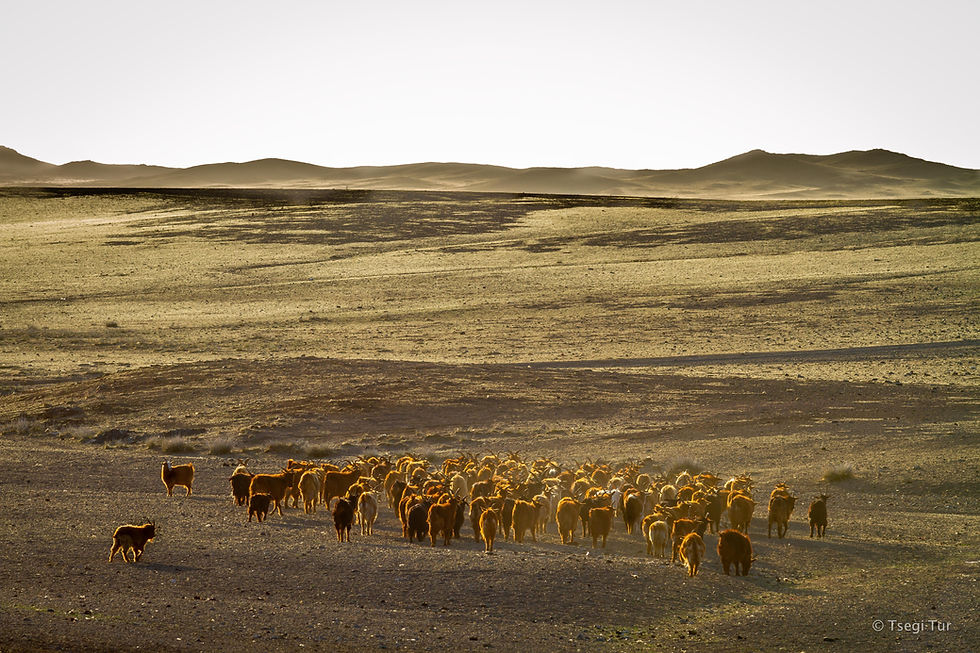
The name cashmere comes from an old spelling of Kashmir where its production and trade originated, possibly as early as the Mongolian empire in the 13th century. Cashmere quality makes it very popular and, although it is more expensive than regular fabric, it’s worth the price, since it’s long-lasting and it always looks beautiful. The cashmere goats shed their undercoat naturally, and cashmere goat owners only comb their animals when they start to shed in April and May. If we did not comb it out, the goats would rub against the feeders and fence posts and deposit all of the cashmere. So, there is no harm done when we comb the goats for their cashmere. Cashmere is not only beneficial to goats but also to the environment and the herders of Mongolia.
The amount of cashmere produced by one cashmere goat is about 8 ounces which will be reduced to about 4 ounces after it is processed. So, it may take 4 goats to make one cashmere sweater. Once the herders have finished combing, the raw material arrives at the factory and is sorted according to quality. Before it can be sewn into clothing, cashmere must be scoured, dehaired, dyed, blended, spun, and woven until the wool becomes soft and light.
“There are four main natural colors – beige, brown, white, and grey, from the most common to the rarest – which we use unbleached in our organic collections, but it can dye in over 1,400 different colors. Then, cashmere finally takes the form of finished garments – jumpers, coats, scarves, blankets, socks, etc. Every detail undergoes quality control checks before products are shipped. But not all cashmere is equally quality: The texture, color, and length of the fibers all affect manufacturing and pricing. Naturally, whiter cashmere fibers require less dye, diminishing the damage that coloring causes to its natural softness. Also, quality depends on the region in which the wool is collected.
Tourists are attracted by the high quality and relatively low prices. Half of our customers in Ulan Bator are foreigners.” There are many cashmere stores in the city but the main two-story Gobi outlet is located east of Sukhbaatar Square, in the heart of the capital.

Commentaires